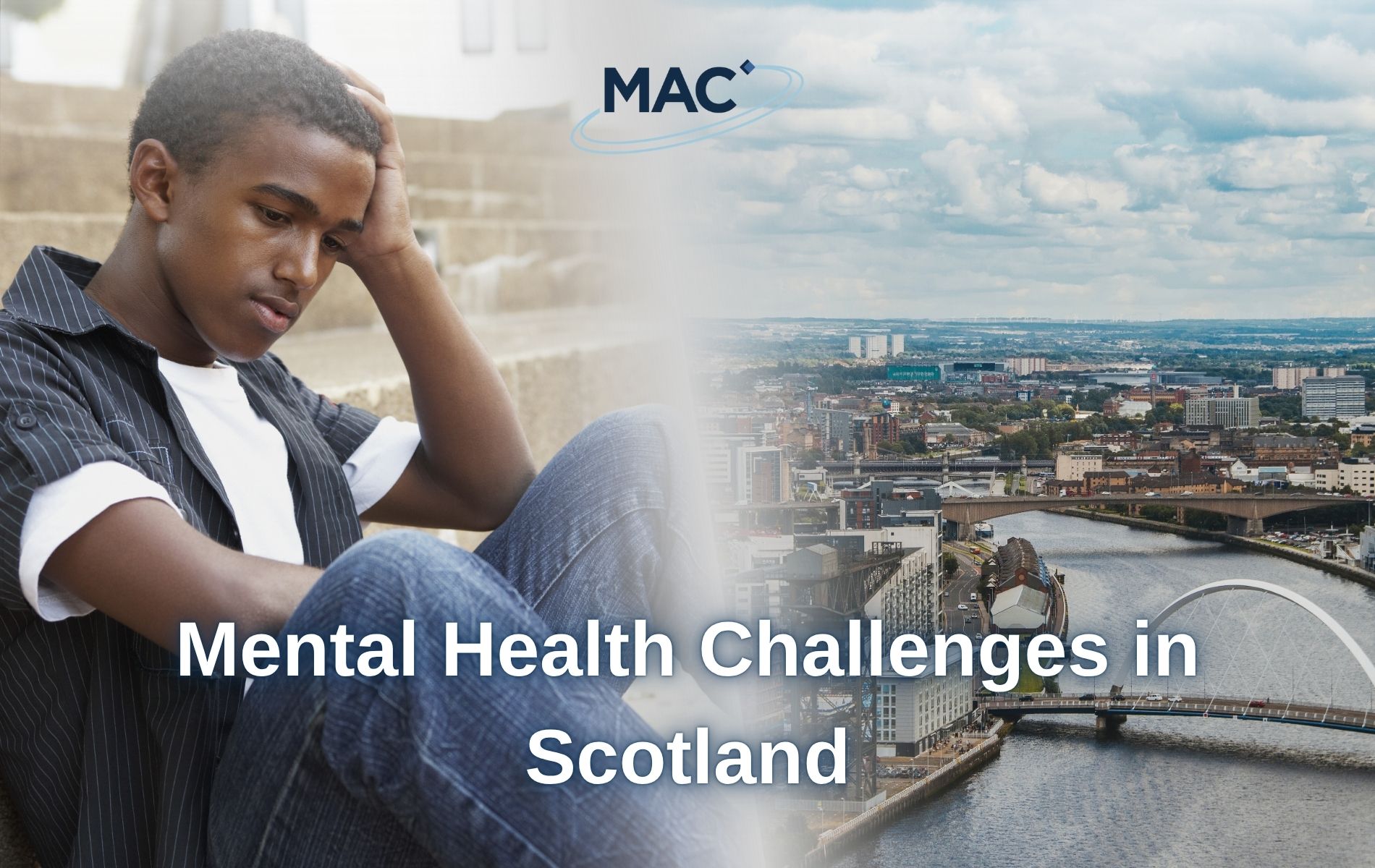Mental health is a deeply personal journey, yet in Scotland, it’s also a shared struggle. Across the country, more people than ever are opening up about their mental wellbeing, and while this growing openness is a positive step, it also reveals the scale of the challenge.
With around one in four people in Scotland experiencing a mental health problem1, according to a recent government report, individuals and communities are navigating a complex landscape of emotional strain, social pressures, and the lingering effects of isolation.
Many people are quietly battling anxiety, burnout, and depression often without the support they need. Conversations around mental health are becoming more common in schools, workplaces, and homes, but stigma still lingers amongst those with less awareness of these debilitating conditions.
Understanding Depression
Depression is one of the most common mental health conditions in Scotland with around 1 in 10 people in the country being diagnosed at some point in their lives2, yet it remains one of the most misunderstood.
Depression is a mental health condition characterised by persistent sadness, lack of interest or pleasure in activities, and feelings of hopelessness. It is a persistent, often invisible weight that can drastically impact a person’s quality of life.
In Scotland and worldwide, depression affects people of all ages and backgrounds. Young adults are reporting higher levels of emotional distress3, often linked to academic pressure, social media, and uncertainty about the future. Older adults, meanwhile, may face loneliness or grief, with more than half of over 50s in Scotland reporting feelings of isolation4.
Support is available with many people relying on friends, family, or peer support groups to get through the hardest days. Others turn to counselling, mindfulness, or, where available, medical support.
Mental Health in Glasgow
In Glasgow, Scotland’s largest city, the mental health landscape reflects both the challenges and the strength of its people. The city has a proud tradition of community spirit, which shows in the many grassroots organisations offering support; from drop-in centres to walking groups and art therapy sessions. Despite this, mental health statistics indicate a higher prevalence of mental health problems in Glasgow compared to the rest of Scotland5.
Addressing the Stress-Depression link in Glasgow
MAC Clinical Research is currently conducting a clinical trial to test an investigational drug for adults who have depression or low mood with high stress levels; the study medication aims to calm the stress system to ease depression symptoms by blocking CRF1 receptors (a protein that broadcasts stress signals from the brain to trigger the body’s response to stress).
This clinical trial is running at various MAC clinics, including our clinic in Glasgow.
To be eligible, you must:
- Be aged 18 to 65.
- Have a diagnosis of depression or a GP visit with depression or low mood.
- Be otherwise healthy.
- Have not been diagnosed with a psychotic disorder such as schizophrenia, schizoaffective disorder, mania
- Have not been diagnosed with bipolar disorder.
Other eligibility criteria will apply. You may receive up to £2495 for taking part in this study.
For more information, visit our Depression Research webpage.
1 Scottish Government – The Scottish Health Survey 2021 – volume 1: main report
2 See Me Scotland – Depression
3 Scottish Government – Exploring the reported worsening of mental wellbeing among adolescent girls in Scotland
4 Age Scotland – New research reveals more than half of over 50s in Scotland experience loneliness
5 Glasgow City Council – GCHSCP Demographics and Needs Profile




